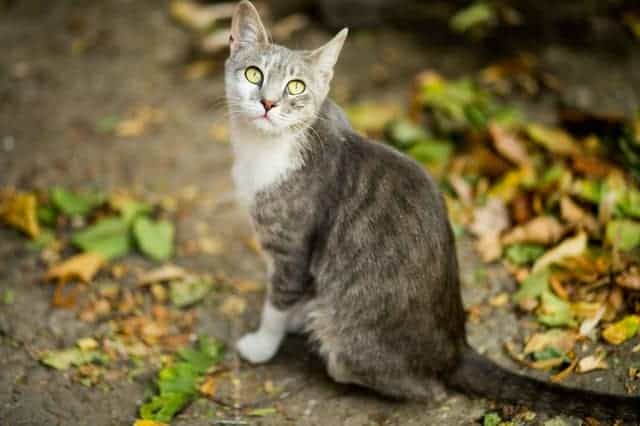
Senile dementia in cats is a very common disease in elderly cats: here’s how to identify it and what to do to help the cat.
As our beloved pet feline ages, our whole life seems to change: the memories of the time spent with him come alive and we remember him when he was strong and lucid. However, the third feline age must not be faced with sadness, but rather with the awareness and desire to solve the possible health problems typical of an elderly cat, primarily the senile dementia of the cat.
What is cat senile dementia
Also known as ‘feline Alzheimer’s’, cat senile dementia is a dysfunction of the feline cognitive and mnemonic sphere of the cat.
It is caused by the failed (and impossible) regeneration of neurons. In fact, starting from its entry into the third phase of its life, after about 10 years, the cat tends to develop this progressive dysfunction.
The disease impairs the quality of his life from various points of view, starting from joint problems to memory problems and so on.
Senile dementia of the cat: the behaviors of a cat that is affected by it
It is not always easy to perceive the first signs of a cat with senile dementia.
In any case, there are some behaviors that, if not sporadic and repeated over time, which are real alarm signals. Here’s how a cat with senile dementia behaves:
- He no longer washes;
- Meows all the time;
- Change the biological rhythm;
- He always looks tired.
He no longer washes
There is no doubt: one of the activities that cats are most interested in and in which they are deeply committed is cleaning.
Yet, if the cat is suffering from senile dementia, it seems that licking the hair, washing and taking care of hygiene are no longer the priorities.
It is likely that if the cat does not wash, this is due to a lack of strength or some related health problem. You have to pay attention to the state of health of the cat’s fur, based above all on its lucidity and smell.
Continuous vocals and meows
A cat with senile dementia is as if it loses track of time: it can no longer distinguish night from day.
Hence, the cat adopts nocturnal behaviors in the sunlight and vice versa. Among these there is certainly also the cat that meows at night and vocalizes continuously, apparently for no reason.
In reality he does it because he feels alone and disoriented, as if he were in a state of perennial darkness that makes him nervous.
Change the biological rhythm
Often it is the cats who remind us when it is time for food, because they feel a sense of hunger.
Yet a cat with senile dementia is as if it forgets that it has already eaten and may continue to ask us for food.
At the same time, maybe his physiological habits can change hours and maybe even become difficult to control: in short, he no longer looks like our cat because he changes all the habits he was so fond of.
He is always tired
Senile dementia in the cat also involves a perennial and constant state of weakness, as if the cat were tired, bored and uninterested in everything around him.
A very strange fact for an animal that is instead interested in everything and always wants to have total control of its territory, including events.
At the same time, this state of apathy also pushes him to sleep more and try to recover his strength.
Already normally the cat’s sleep is made up of many short (and alert) naps, which are used to recharge the daily energies; but in the case of the sick cat he will tend to sleep much more than usual.
It is not said that all this tiredness does not turn into aggression: it can also happen that the cat feels so frustrated and nervous that it becomes violent even with the people it loves.
Senile dementia in cats: is there a cure?

Unfortunately, the answer must be clear-cut: no, there is no cure for the cat suffering from senile dementia. There are many palliatives that allow the cat to live a more or less peaceful life.
Eliminating the condition of mental dysfunction and healing the cat that is affected by it is not possible; however, it is possible, with pharmacological treatment and supplements, to weaken its effects and control a progressive worsening.
The most useful drugs are based on selegine, which is usually used for humans with Parkinson’s disease. There are also special supplements that must be combined with a specific diet: we ask for advice from our trusted veterinarian.
Finally, it will be very useful to understand how to take care of a cat with senile dementia, how to help him face the small difficulties of every day and how to make his life less ‘influenced’ by the disease he suffers from.






